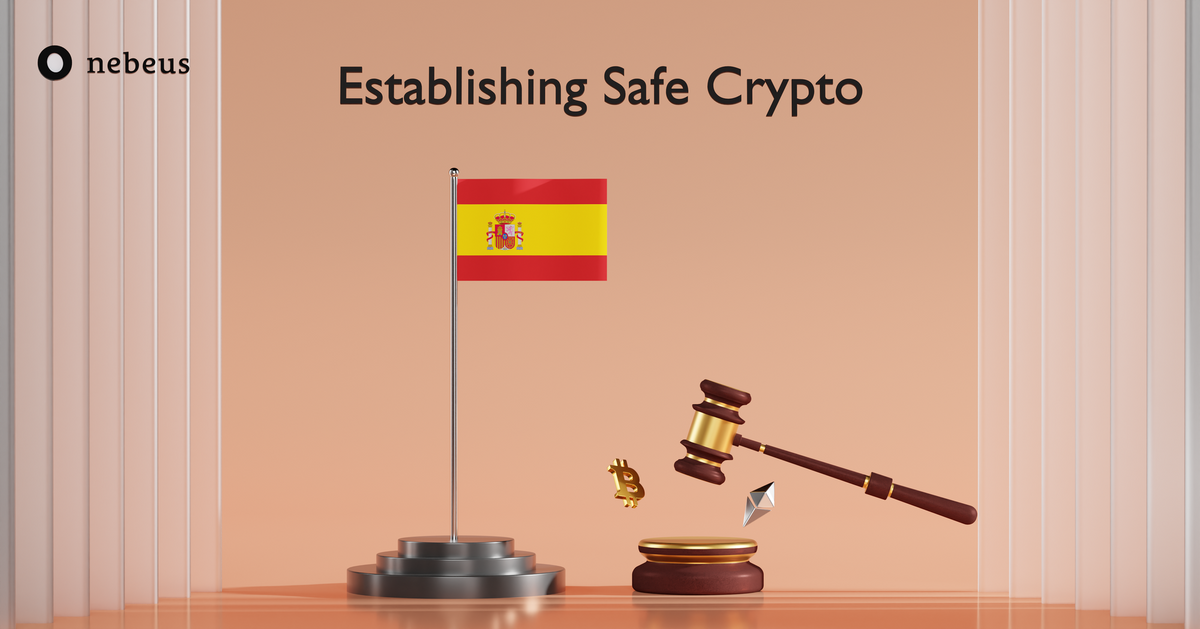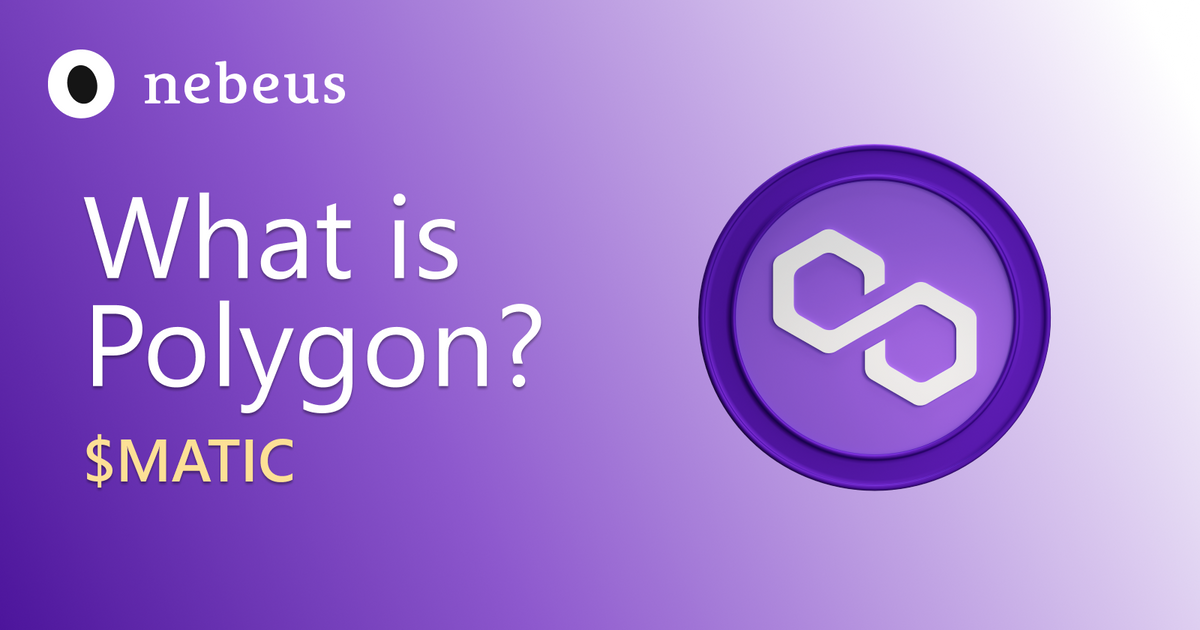We are proud to announce that the Bank of Spain has granted Nebeus registration as a Virtual Asset Services Provider (VASP) in July 2022. With this registration, we are an official cryptocurrency custody and services provider in Spain, and our operations are in line with the country's anti-money laundering (AML) and counter-terrorist financing (CTF) rules.
Nebeus has provided a range of crypto services to over 120 nations since its establishment in 2014, including a complete crypto ecosystem that offers services such as crypto-backed lending, earning rewards on cryptocurrencies, own wallet and exchange.
This new regulation places us firmly in the company of well-known cryptocurrency service providers, like Binance, who announced earlier this month that the Bank of Spain had also granted them VASP registration.
Nebeus is Now Regulated by the Bank of Spain
Nebeus has been approved and registered by the Bank of Spain as a VASP, along 20 other companies that hold the same recognition. What is more, only 3 of them have the license for cryptocurrency custody, Nebeus being among the group.
The Bank of Spain inspects local organisations and the directors of those organisations to ensure compliance. For VASPs providing either:
- Custody services for digital wallets
- Exchange services for Euros and other currencies to cryptocurrency assets
Moreover, the Bank of Spain supervises and ensures compliance with AML and CTF regulations. The Bank of Spain also confirms that the local organisation's directors and management team adhere to business and professional integrity standards.
Why is getting Bank of Spain regulation important for Nebeus and its users?
Nebeus has always prioritised its users, and with moves like attaining regulation, users can be confident that our platform is one of the most secure and reliable in the world. Nebeus (Rintral Trading SL) is already registered with the Bank of Spain (number D664) for the sale and purchase of digital assets and custody services.
This is a big step toward publicly demonstrating that, as a European startup, we are committed to ensuring that all laws preventing money laundering and terrorist financing, among many others, are followed. As Michael Stroev, our COO, says, our mission at Nebeus is “to provide the safest and most trustworthy place for crypto investors to hold their assets, trade, and much more. This is why we continue to grow, both from a regulatory and company perspective.”
The individual nations that form Europe maintain the regulatory environment, each with its own laws. While there has not been a unified framework that all member states have followed in the past, The European Union has gradually started to show a greater interest in coordinating the European laws governing digital assets in recent years.
What are the current cryptocurrency regulations in the EU?
Until a few years ago, cryptocurrencies were a strange grey area in many European nations.
Despite this, while individual EU member state regulation of cryptocurrencies varies, these assets are generally considered legal throughout the European Union. For example, cryptocurrency taxation varies, but many member states impose capital gains tax rates ranging from 0 to 50% on related profits.
Cryptocurrencies and other digital assets are currently categorised in the EU as qualified financial instruments (QFIs). Exchanges that deal in QFis are subject to various regional regulations.
As such, businesses can simply rely on their current QFi licences to offer products and services related to cryptocurrencies. Nonetheless, companies are still required to abide by a wide array of EU cryptocurrency regulations, such as those related to Anti Money Laundering and other rules regarding compensation, margins, deposits, and sanctions.
What regulations does Nebeus comply with?
Nebeus complies with all EU regulations.
We strictly adhere to the Fifth Anti-Money Laundering Directive (AMLD5). This directive requires exchanges to conduct Know Your Client (KYC) and Customer Due Diligence (CDD) on users. Plus, they must comply with standard reporting requirements.
Nebeus, with its strong user focus, has continuously maintained a robust and enhanced due diligence (EDD) process, requesting electronic identification admissible by national authorities and verifying customers based on documents, data, or other information obtained from a reliable source, especially for high-risk clients and nations.
Nebeus also adheres to all PCI DSS (Payment Card Industry Data Security Standards).
However, the European Union's executive body proposed new regulations in 2020 to close the legal grey area involving cryptocurrency service providers. This means the regulatory landscape is going to change very soon.

What is the EU’s MiCA Framework?
Despite the turbulence of the upcoming implementation of the Markets in Crypto Assets (MiCA) regulation by 2024, Nebeus is already well prepared.
MiCA, a component of a larger legislative package to regulate fintech, aims to harmonise the legal framework for cryptocurrencies among the 27 nations that make up the European bloc. It also seeks to safeguard investors and maintain market stability by requiring cryptocurrencies to adhere to the same standards of transparency, disclosure, licensing, compliance, authorization, and oversight as other financial products.
The MiCA proposal from September 2020 also describes a wide range of crypto-assets, including utility tokens, asset-referenced tokens (ART), e-money tokens (EMT), and others, that are not yet covered by the EU’s financial law. European Union officials finally approved the proposal in late June in its provisional form.
What advantages do providers of digital asset services get?
MiCA is also important because it will streamline the licensing procedure for service providers by extending home member state licensing to all EU members, thus saving time, money, and labour.
What advantages do investors in crypto assets get?
MiCA's primary goal is to protect investors in digital assets, the long disregarded victims of widespread market abuse, fraud, and hacking. The regulations will assist inexperienced cryptocurrency investors in avoiding falling prey to these common scams and pitfalls.
What are the advantages for national regulators and authorities?
While MiCA will undoubtedly end disjointed national legislative frameworks, it will give digital asset providers a clear regulatory framework to operate under.
Additionally, MiCA establishes regulations against insider trading and market manipulation on cryptocurrency trading platforms. These actions will be immediately prohibited in the EU once this framework is in place.
Nebeus is ready and prepared for any and all changes
The MiCA proposal also covers those who wish to engage in crypto-asset activities, such as trading, brokerage, or providing investment advice. They will also need to obtain prior permission from their national supervisory authority to do so.
Due to Bank of Spain regulation, we have already met this requirement, which puts us in a strong position to navigate the changes MiCA will bring.
With the help of the new law's "passport," we will be able to serve customers throughout the EU while adhering to capital and consumer protection regulations.
Overall, our regulation in Spain is an acknowledgment of our team's hard work and commitment to providing a platform that places user protection above all else.
What MiCA Means for the World
The debates over regulating crypto-assets have evolved from specialised discussions to a top legal priority discussed in all of Europe's highest political institutions. It is difficult to predict when MiCA will be adopted and come into force. The EU has lengthy procedures before something becomes law, so there is no deadline for when this proposed legislation will be approved. However, some people are optimistic and think that MiCA might become law sooner than 2024.
Given that it is the third-largest economy in the world, the EU’s crypto regulatory decisions are anticipated to have a significant global impact. This is much like the EU's pioneering data privacy policy, which de facto established an international standard, and its recent landmark law addressing harmful content on digital platforms.










